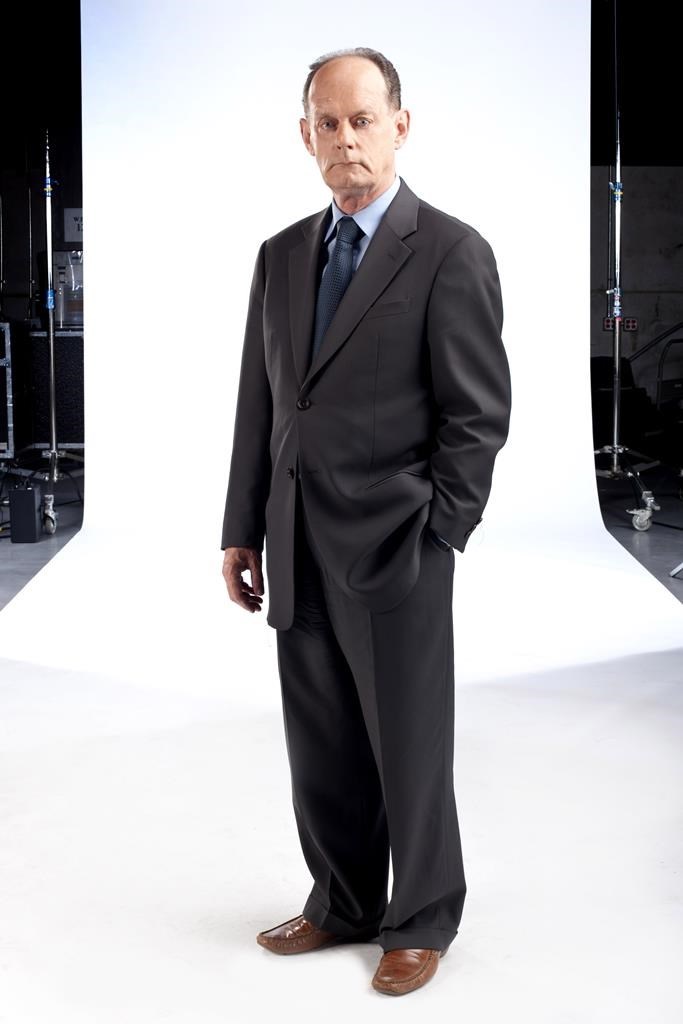The National Post is reporting that Rex Murphy, the pro-oil pundit who was at once the steady stickhandler of a national call-in radio show and a driver of divisive online discourse, has died.
The newspaper, where he worked as a columnist, said in an obituary on its website that Murphy died at age 77 following a battle with cancer.
Former prime minister Stephen Harper expressed his condolences on social media.
"Rex Murphy was one of the most intelligent and fiercely free-thinking journalists this country has ever known," Harper wrote.
Conservative Leader Pierre Poilievre, in a social media post, called Murphy "an icon, a pioneer of independent, eloquent and fearless thought, and always a captivating orator who never lost his touch."
Murphy hosted CBC Radio's "Cross Country Checkup" for more than two decades, holding the mic while the radio station opened its phone lines to callers far and wide.
Tasked with asking callers about their opinions and moderating on-air debates, Murphy said he was presented each week with a portrait of the country.
"You get a sense of how the citizenry like to deal with things. What gives you the most satisfaction is the tempered nature of Canadians, even when they're disagreeing," Murphy told The Canadian Press when he announced his retirement from the role in 2015.
Born outside of St. John's, N.L., Murphy graduated from Memorial University before attending Oxford University as a Rhodes Scholar.
Murphy got his start lending a hand at the private radio station VOCM in St. John's, backfilling a talk show while its host went on vacation.
He spent a month in that job in the early 1970s before jumping into a gig with CBC Radio's Here and Now.
More than a decade later, he dipped his toe into politics. He ran for provincial office twice — first in Placentia, N.L., in 1985 and then in a byelection in St. John's East a year later — and lost both times.
Though he ran with the Liberal Party of Newfoundland in both cases, he became a loud detractor of the federal party later in life, calling Prime Minister Justin Trudeau's government "the worst Canadian government ever."
Murphy was likewise an outspoken opponent of "wokeism," progressive ideology sensitive to systemic inequities, and argued repeatedly in his weekly National Post column that conservative voices like his were being pushed to the margins.
In a 2022 column, he decried "the frenzy of woke politics and the cancel culture it has bred and nourished, the prescriptions on what may or may not be debated or talked about."
Two years earlier, he'd been at the centre of one such frenzy for another piece of writing in the National Post.
A week after Minneapolis police murdered George Floyd, a Black man, Murphy accused Liberals — those with Ls both big and small — of trumping up racism in Canada.
"Most Canadians, the vast majority in fact, are horrified by racism and would never participate in it," he wrote. "We are in fact not a racist country, though to say so may shock some."
The column was widely decried, prompting an editorial review at the Post. Leadership eventually added a note at the top of the piece saying it fell short of the newspaper's standards.
This was not Murphy's first brush with controversy.
In 2014, while still hosting "Cross Country Checkup" and regularly contributing TV essays to "The National," members of the public complained to CBC's ombudsman that Murphy was in a conflict of interest for doing paid speeches at oil industry gatherings.
Murphy had long defended the sector, including on CBC, saying the oil boom saved many of his friends and fellow Newfoundlanders from economic ruin when the East Coast fisheries collapsed.
As for the speeches, he said nobody controlled what he said — not the oil industry, and not the CBC.
For its part, the public broadcaster initially defended Murphy, saying that as a freelancer, he had more leeway than full-time staff. But after the ombudsman's report, the CBC changed its policy to require freelance hosts to disclose their paid events to the company.
Murphy's pro-oil position went hand-in-hand with his stance on environmentalists.
In 2020, he referred to them as a "doomsday cult of global warming," and three years later argued "environmental alarmism is the religion of children, a sandbox for narcissists — regardless of how old they are."
Several premiers paid tribute to Murphy on social media, including Newfoundland and Labrador's Andrew Furey.
"Newfoundlanders and Labradorians are mourning one of our own tonight, and sending condolences to his family and friends," Furey wrote. "Rex Murphy's quick wit and mastery of words were unmatched, and his presence was significant — whether or not everyone always agreed."
Premier Danielle Smith called him a "good and true friend to Alberta."
"Canada will never have a voice like his again — as a proud Newfoundlander he championed what he believed to be right for our country," Smith said.
Saskatchewan's Scott Moe said Murphy was a strong advocate for Western Canada.
"He was a fiercely proud Canadian who believed every part of Canada should be treated fairly because every part of Canada makes our nation stronger," the premier said.
This report by The Canadian Press was first published May 9, 2024.
Nicole Thompson, The Canadian Press

